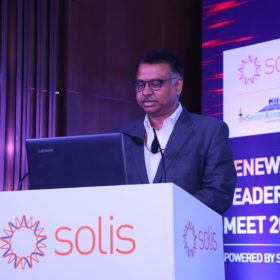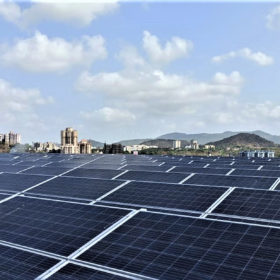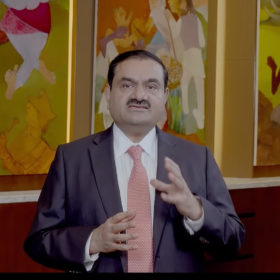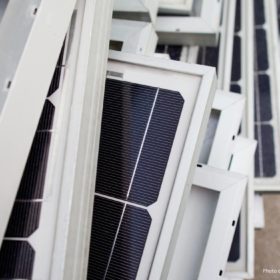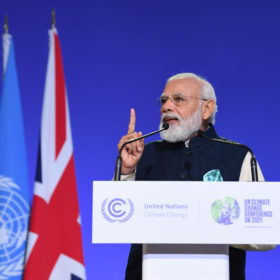“450 GW by 2030 renewable energy target ambitious but achievable”
At the Renewable Leadership Summit 2021 held recently in New Delhi, Dinesh Jagdale, joint secretary, Ministry of New and Renewable Energy, also asserted the ministry is working on addressing stakeholders’ concerns to ensure the investments keep flowing into RE capacity expansion and equipment manufacturing. The Summit, organized by Solar Association, also saw Solis launch its new-generation PV plant monitoring platform and off-grid hybrid inverters.
Solar and wind power procurement options for commercial and industrial consumers
Solar, like wind, has evolved into a more viable bilateral arrangement business model as prices have decreased and favorable legislation has emerged. Due to significant technical advancements, the solar industry has overtaken wind and has emerged as the favored option.
Adani Green targets 45 GW renewable energy generation capacity by 2030
The renewable energy developer had an operational capacity of 5,410 MW (4,763 MW solar and 647 MW wind) as of September 30.
US Commerce Department throws out anti-dumping petitions
The dismissal is a win for the Solar Energy Industries Association, which vigorously opposed the request by American Solar Manufacturers Against Chinese Circumvention (A-SMACC) for anti-dumping and anti-circumvention (AD-CVD) tariffs
Reversing the crisis of climate change
We all should envisage a society in which everyone, including individuals and businesses, operate carbon neutrally, i.e., all entities reduce their carbon footprint by adopting sustainable practices.
Dispute resolution committee to look into commissioning extension for solar projects due before April
The ministry of New and Renewable Energy has empowered the Dispute Resolution Committee to look into commissioning extension requests for solar projects that are due for delivery before April 1 next year.
Moving from energy-efficient buildings to energy-generating buildings
To achieve the government’s ambitious renewable energy targets, and integrate the two growing sectors of infrastructure and construction and renewable energy, the existing policies and codes for green buildings need to be further enhanced. Most of these rules need to include specific details about energy generation. Right now, these are more to do with energy efficiency.
End-of-life management of solar PV waste in India
A new study proposes an ‘extended producer responsibility’ based regulatory framework for end-of-life (EOL) solar PV management in India. Under the framework, the Government of India (GoI) works as the nodal agency, defining the roles and responsibilities of different stakeholders and regulating the overall supply chain. The onus of EOL solar PV take-back, transportation, storage, recovery, and destruction lies on the manufacturers, with the entire system cost borne by an executive committee formed by the manufacturers.
India commits to net-zero by 2070
At COP26 Summit in Glasgow, prime minister Narendra Modi also announced India’s pledge to increase its non-fossil energy capacity to 500 GW by 2030. The nation would also increase renewable energy’s share in its overall energy generation mix to 50% by 2030.
Investors bet big on renewables while solar takes on coal
Foreign direct investment’s role in bringing in finance, superior technology and other resources is undoubtedly a critical one. The Indian government has tried to create a conducive environment for enabling flow of foreign investments into the solar energy sector in the country, but the norms need to be eased further to really push the industry to its maximum growth potential.
